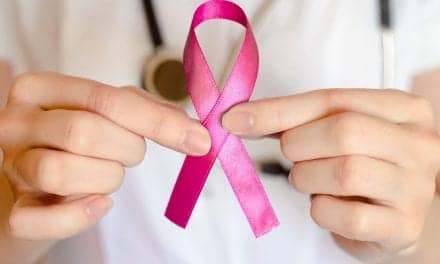A consortium of leading breast cancer experts, clinicians, and academics will partner with leaders in artificial intelligence (AI) research to explore whether AI could help detect and diagnose breast cancers more effectively.
Led by Imperial College London, the consortium will be based at the Cancer Research UK Imperial Centre. Clinicians and radiologists from the Centre will work on the research with technical partners at DeepMind Health and the AI health research team at Google, alongside the Cancer-Research UK funded OPTIMAM mammography database at the Royal Surrey County Hospital NHS Foundation Trust.
The alliance aims to understand whether machine learning tools can increase the accuracy of breast screening interpretation, improving the ability to detect breast cancers on mammograms. The project may also provide women with a better estimate of their risk of breast cancer, which could help guide them in taking actions to prevent it.
Through this research, the team hope to explore whether it is possible to train computer algorithms to analyze these images, to spot signs of cancerous tissue, and to alert radiologists more accurately than current techniques allow.
“This partnership marks an exciting exploration of the potential for artificial intelligence in healthcare,” says Ara Darzi, OM, KBE, PC, FRS, FMedSci, director of the Cancer Research UK Imperial Centre. “Ultimately, we want this kind of technology to benefit patients and it may be a number of years until this kind of approach is used, but if these initial trials prove successful, AI could make screening services for cancer far more efficient and improve outcomes.”
As part of this project, machine learning technology from DeepMind Health and the AI health research team at Google will be applied to historic ‘de-identified’ mammograms from around 7,500 women provided by the Cancer Research UK-funded OPTIMAM database at the Royal Surrey County Hospital NHS Foundation Trust.
“Harnessing the power of artificial intelligence could enable us to address some of the biggest challenges in breast cancer research, including improving the accuracy of detection,” says Iain Foulkes, PhD, Cancer Research UK’s executive director of research and innovation. “Too many cancers are detected at a late stage when they are more difficult to treat. This is why Cancer Research UK is building capacity, forging new partnerships, and supporting a community for early detection research so that more people might survive their disease.”



![Applying AI to Pneumothorax Detection [Radiology’s Most Influential]](https://axisimagingnews.com/wp-content/uploads/2019/07/Karl-Yaeger-440x264.jpg)


